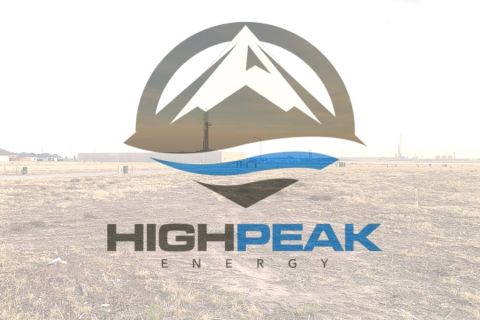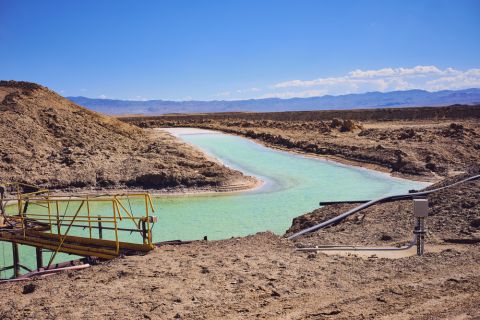Sandy Segrist, senior editor, Hart Energy: Hi, I am Sandy Segrist. I am here at DUG Gas+ with Allen Fore of Kinder Morgan, vice president of public relations, and we have been talking about what the atmosphere is right now for a pipeline company attempting to get a job done in the U.S. So what have been your observations from the past?
Allen Fore, Kinder Morgan: Well, I would probably characterize it best as challenging, but manageable. Any infrastructure, not just midstream pipeline companies, but anybody building anything from a new road to a new waterline, to a new Walmart is going to be challenging. There are a lot of complex regulatory processes there at the state, local and federal levels, and you need to navigate all of them. There's inherently going to be public opposition of some sort for any type of construction. I haven't seen a construction project. An ice cream shop is probably controversial to some. So you need to understand that going in and the way we manage these processes, we manage each project individually. There is no cookie cutter approach to this. So if we're building something, make sure that you look at all potential stakeholders. I think stakeholders is an overused word, but what that means really is those that either directly or indirectly impacted by your project in a positive or potentially negative way from not only your point of view, but from their point of view. What is important to them? A landowner, if you're on their property, they care about their property. If it's a local government, they may care about tax revenue or access to the product that you are developing. If it's the federal government. It may be more along the environmental regulatory line. So addressing all of those, understanding up front, developing a plan to meet and exceed the expectations of those various entities, I think sets you off well. That makes a project less challenging and more manageable, but still challenging and manageable, if that makes sense.
SS: What is the hope right now that you see Senator Manchin has put forward a hope for some kind of holistic permitting reform for pipeline projects?
AF: Well, I think he's certainly on the right track, and one of the challenges to the industry is, and we're trying to develop further domestic energy independence, which is really, really important. We're trying to also be a player in the global energy market where countries that need energy can be provided. But it is a very, very complex regulatory process. And you've seen California in some ways start rolling back some of their CEQA specifications for certain infrastructure projects. So I think there's, again, I think it goes back to can a compromise be reached that everyone feels that they've received some of their considerations processed? And I think there are reasonable ways to do that. I think that's what Senator Manchin is trying to do. He doesn't have much time left. There will be a new congress, potentially a new administration. So we'll see how all that plays out.
But I think that I don't see significant overturning of processes. And frankly though, many of the regulatory entities like the FERC, the Federal Energy Regulatory Commission, are quasi-governmental agencies that don't directly report to administration. In other words, they promulgate their own rules. They have five commissioners, three appointed by the president of the party in the White House, two appointed by the other party. So you don't ever usually have a major transformational process just because one administration comes and the other, and if Congress passes regulations or changes, those all have to be promulgated and implemented, and that sometimes takes years. So we're going to need to work within the landscape that we have and do our best to make those processes manageable for us. But I certainly think if we're going to grow the industry and be a part of particularly that global export market, which is not only important to us as a country, but also to the world, we're going to need to take a close look at that.
SS: Okay. How do you all see the current price of gas being below $2 and staying below $2? How do you see that affecting, especially here, say in the Haynesville Shale or in other places?
AF: Are you talking about natural gas? Natural gas, yes, because $2, $2, petroleum gas would be a good number when you're seeing $5 and $6 gasoline in California. I think that's good. I think there's increases in overall price is I think helpful for producers. It's helpful for all the way down to individual landowners for royalties, et cetera. Our business is a little different in the sense that we're somewhat affected by prices going up and down, but not as much as producers because our pipelines are generally long-term fixed contracts at a guaranteed rate. So the fluctuations don't impact us too much. They can impact that incremental piece of your pipe that's not fixed. Those fluctuate. It can impact projects that are being developed and the margins on those of those being produced. So I think it's encouraging and hopefully we'll see some real results of those by some of these projects that are near final investment, moving towards actual implementation.
SS: Okay. Thanks again for your time. Thank you. And for more information, please stay here at hartenergy.com.
Recommended Reading
Jerry Jones Invests Another $100MM in Comstock Resources
2024-03-20 - Dallas Cowboys owner and Comstock Resources majority shareholder Jerry Jones is investing another $100 million in the company.
CorEnergy Infrastructure to Reorganize in Pre-packaged Bankruptcy
2024-02-26 - CorEnergy, coming off a January sale of its MoGas and Omega pipeline and gathering systems, filed for bankruptcy protect after reaching an agreement with most of its debtors.
Baytex Prices Upsized Private Placement of Senior Notes
2024-03-15 - Baytex intends to use the proceeds to pay a portion of outstanding debt on its credit facilities and general corporate purposes.
HighPeak Energy Authorizes First Share Buyback Since Founding
2024-02-06 - Along with a $75 million share repurchase program, Midland Basin operator HighPeak Energy’s board also increased its quarterly dividend.
M4E Lithium Closes Funding for Brazilian Lithium Exploration
2024-03-15 - M4E’s financing package includes an equity investment, a royalty purchase and an option for a strategic offtake agreement.





